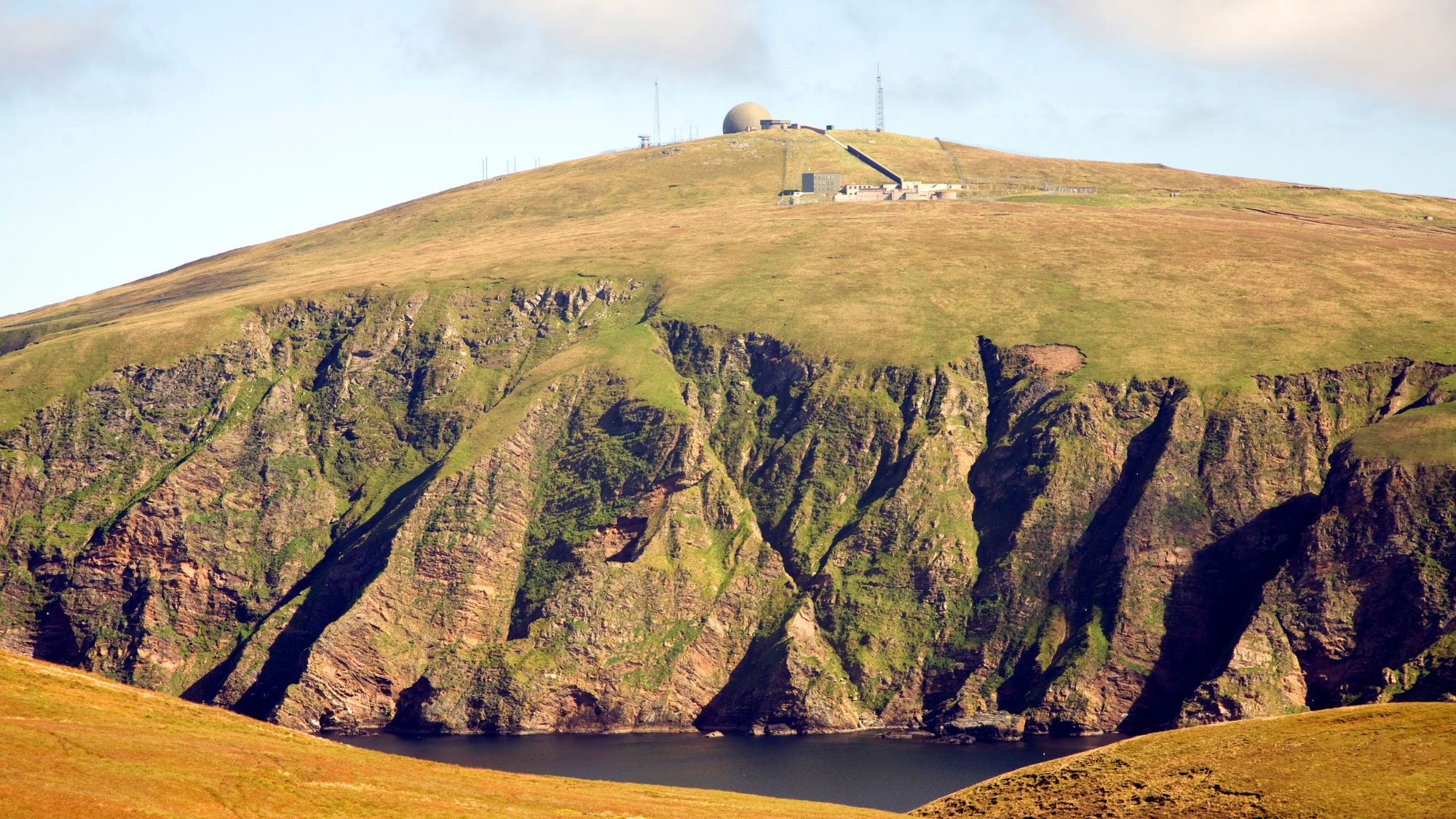Lift-off in Shetland Islands for UK's first vertical spaceport
SaxaVord Spaceport aims to begin rocket launches next summer

A free daily email with the biggest news stories of the day – and the best features from TheWeek.com
You are now subscribed
Your newsletter sign-up was successful
A former RAF base on the remote Shetland island of Unst has become Western Europe's first licensed spaceport capable of launching rockets vertically.
The SaxaVord Spaceport, located on the northernmost island of the Shetland archipelago, has received a licence from the Civil Aviation Authority (CAA) to begin launching rockets from next year.
The licence "will allow up to 30 satellites and other payloads" to be launched into "commercially valuable polar, sun-synchronous orbits", The Guardian said. Demand is high from satellite operators for such satellites, which can be used for communications purposes as well as for observation of the Earth.
The Week
Escape your echo chamber. Get the facts behind the news, plus analysis from multiple perspectives.

Sign up for The Week's Free Newsletters
From our morning news briefing to a weekly Good News Newsletter, get the best of The Week delivered directly to your inbox.
From our morning news briefing to a weekly Good News Newsletter, get the best of The Week delivered directly to your inbox.
SaxaVord is one of three UK launch sites "vying to become Europe's leading spacehub", said Space.com.
Another contender, the Sutherland Spaceport, located on the A'Mhòine peninsula on the north coast of Scotland, is still awaiting a licence.
Britain has only one other licensed spaceport, in Newquay, Cornwall, but it can only support horizontal launches, meaning "rockets are launched from aircraft after being carried to high altitudes underwing", Space.com explained.
Scott Hammond, deputy chief executive of SaxaVord, told The National that while there are no current missions scheduled, next summer should be "achievable" to host the site's first launch. "I think we will be putting up satellites that will go up and grab old satellites and get them out of orbit so as to decrease space waste," Hammond said.
A free daily email with the biggest news stories of the day – and the best features from TheWeek.com
Two German companies, Rocket Factory Augsburg and HyImpulse, are currently hoping to carry out launches from SaxaVord next year.
According to Sky News, husband and wife Frank and Debbie Strang, who have owned the site since 2004, "also have plans for a hotel and visitor centre".
Frank Strang told the broadcaster the UK was "right at the head of the European Space Race".
"I see it as akin to the ascent of Everest by Hillary," he said. "It makes a statement, it creates a feelgood factor and it shows the world the UK is very serious about the space economy."
Arion McNicoll is a freelance writer at The Week Digital and was previously the UK website’s editor. He has also held senior editorial roles at CNN, The Times and The Sunday Times. Along with his writing work, he co-hosts “Today in History with The Retrospectors”, Rethink Audio’s flagship daily podcast, and is a regular panellist (and occasional stand-in host) on “The Week Unwrapped”. He is also a judge for The Publisher Podcast Awards.
-
 The ‘ravenous’ demand for Cornish minerals
The ‘ravenous’ demand for Cornish mineralsUnder the Radar Growing need for critical minerals to power tech has intensified ‘appetite’ for lithium, which could be a ‘huge boon’ for local economy
-
 Why are election experts taking Trump’s midterm threats seriously?
Why are election experts taking Trump’s midterm threats seriously?IN THE SPOTLIGHT As the president muses about polling place deployments and a centralized electoral system aimed at one-party control, lawmakers are taking this administration at its word
-
 ‘Restaurateurs have become millionaires’
‘Restaurateurs have become millionaires’Instant Opinion Opinion, comment and editorials of the day
-
 Nasa’s new dark matter map
Nasa’s new dark matter mapUnder the Radar High-resolution images may help scientists understand the ‘gravitational scaffolding into which everything else falls and is built into galaxies’
-
 Moon dust has earthly elements thanks to a magnetic bridge
Moon dust has earthly elements thanks to a magnetic bridgeUnder the radar The substances could help supply a lunar base
-
 How Mars influences Earth’s climate
How Mars influences Earth’s climateThe explainer A pull in the right direction
-
 The ‘eclipse of the century’ is coming in 2027
The ‘eclipse of the century’ is coming in 2027Under the radar It will last for over 6 minutes
-
 NASA discovered ‘resilient’ microbes in its cleanrooms
NASA discovered ‘resilient’ microbes in its cleanroomsUnder the radar The bacteria could contaminate space
-
 Artemis II: back to the Moon
Artemis II: back to the MoonThe Explainer Four astronauts will soon be blasting off into deep space – the first to do so in half a century
-
 The mysterious origin of a lemon-shaped exoplanet
The mysterious origin of a lemon-shaped exoplanetUnder the radar It may be made from a former star
-
 The 5 biggest astronomy stories of 2025
The 5 biggest astronomy stories of 2025In the spotlight From moons, to comets, to pop stars in orbit